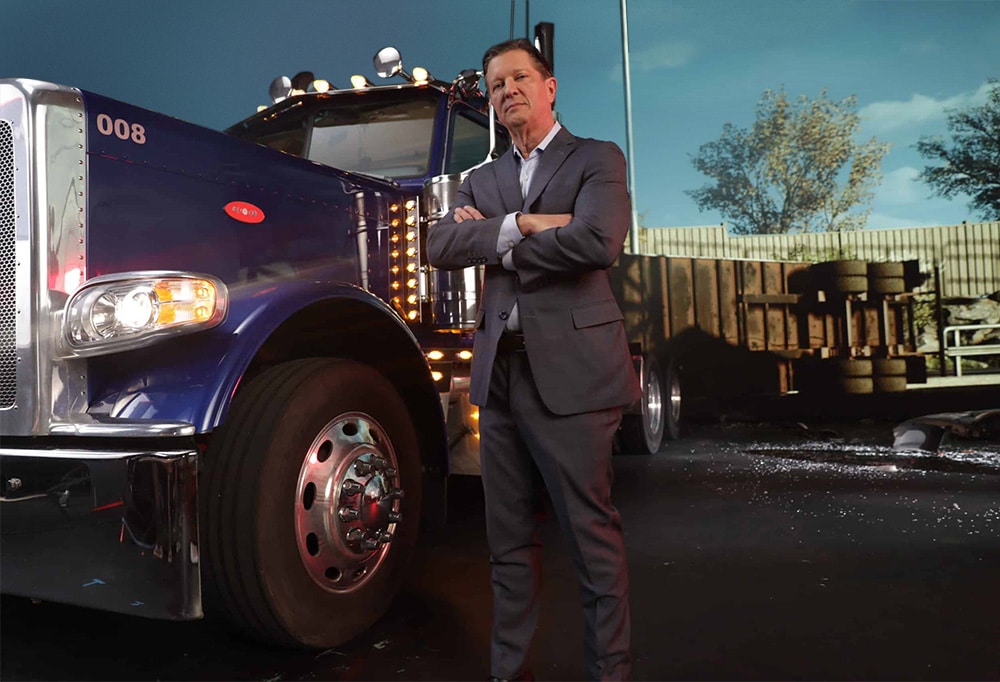
According to the Federal Motor Carrier Safety Administration an estimated 13.9 million trucks travel U.S. roads, including over three million tractor-trailers.
Under South Carolina law and federal regulations, these 18-wheelers may be as long as 65 feet and weigh as much as 80,000 pounds. Their massive size makes these vehicles much longer and heavier than passenger cars and light trucks and increases the chance of severe injuries in a crash.
All drivers must recognize the danger of tractor-trailers. Their size, weight, and limited maneuverability create a unique risk on the road, especially when hauling flammable liquids, toxic materials, and other massive freight.
It’s no wonder that in more than 95 percent of fatal car vs. truck crashes in South Carolina, it is someone in the car who is killed.

If you or someone you know has been in a collision involving a big truck in South Carolina, you are entitled to a free consultation with a truck accident lawyer. Call Joye Law Firm Injury Lawyers at (888) 324-3100 or complete our online contact form.
We have offices in Charleston, North Charleston, Myrtle Beach, Greenville, Clinton, Summerville, and Columbia, and we represent people who have been hurt in truck accidents anywhere in South Carolina. If you can’t come to us, we’ll come to you.
Causes of Tractor-Trailer Accidents in South Carolina
Tractor-trailer accidents occur for many reasons. Unfortunately, many truck wrecks result from commercial vehicle drivers who disregard the rules, make careless mistakes, or act recklessly.
Truck drivers are required to have a professional commercial driver’s license and are expected to follow guidelines and regulations. These include checking their load balance carefully, complying with all federal and state safety regulations, and driving in a safe way to avoid injuring other motorists, bicyclists, or pedestrians.
Some of the top causes of tractor-trailer crashes include:
- Driver fatigue. The Federal Motor Carrier Safety Administration (FMCSA) estimates that driver fatigue is a factor in as many as 6,000 truck accidents annually. Hours-of-service rules mandate a break within the first eight hours of driving for long-haul drivers and limit the average weekly hours to 70 hours per week.
- Speeding. Truckers who exceed the speed limit are more likely to lose control of their vehicles, roll their vehicle, or be unable to stop in time to avoid hitting another car. Speed-related accidents include crashes where a driver breaks the posted limit and wrecks where a tractor-trailer driver goes too fast for road, weather, or traffic conditions.
- Distracted driving. Drivers on a cell phone, sending a text message, watching a video, or using in-vehicle controls are as much as 4 to 23 times more likely to cause an accident. Any activity that causes a driver to look away from the road may significantly increase the chances of a devastating tractor-trailer wreck.
- Unbalanced loads. When an 18-wheeler is improperly loaded, or a driver fails to balance the load, increasing the risk of an accident. Rollover accidents are prevalent with improperly loaded trucks or improperly secured freight shifts in transit.
- Jackknife accidents. Jackknife accidents happen when the trailer slides out to the side of the tractor, potentially causing severe injury to motorists in the path of the jackknifing vehicle.
- Under-ride accidents. Under-ride accidents are among the most dangerous big truck crashes and occur when a car slides underneath the trailer. South Carolina Code Section 56-5-4070 mandates that most large trucks, including tractor-trailers, use under-ride guards to prevent these deadly accidents.
- Mechanical failure or vehicle defects. Tractor trailers must be maintained according to guidelines set forth by the FMCSA. Trucks have many parts, such as air brakes, that are prone to failure without proper maintenance.
- Blind spots. Big rigs have large blind spots, and truck drivers must account for them. Truck drivers must check carefully for other motorists before turning or changing lanes.
- Poor driver training. There is a shortage of professional truck drivers in the United States, causing some companies to employ drivers with sufficient experience to operate large tractor-trailers safely.






